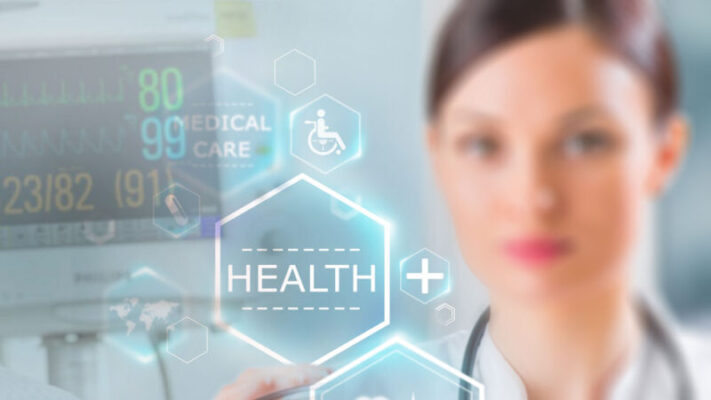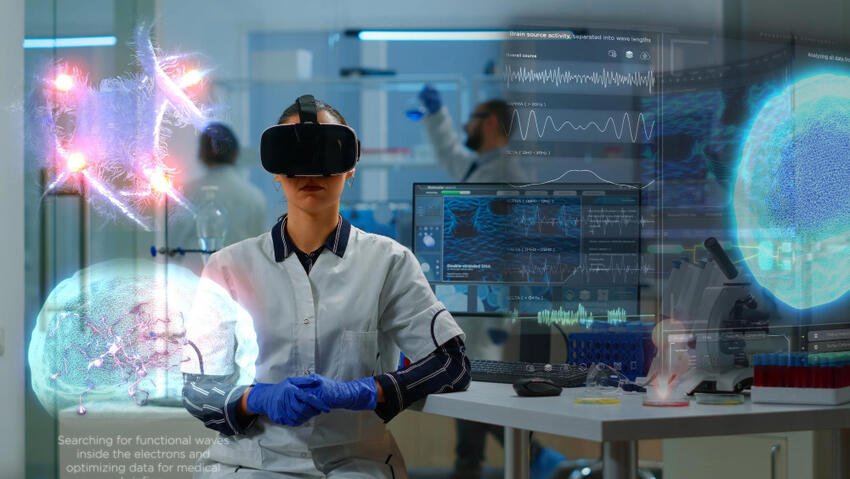Artificial intelligence (AI) has to be the breakout technology of the 21st century. While it’s true AI has been around for a long time, it’s only over the last two decades that it has moved from a concept to reality. AI technology is enjoying explosive growth with the global AI market predicted to reach $190.61 billion in 2025.
One area where AI is in full application is healthcare. In an industry plagued by myriad challenges and inefficiencies, AI shows hope of a revolution. In 2020, the global AI healthcare market size was $6.7 billion and will grow at a compound annual growth rate (CAGR) of 41.8% through to 2028. So, is AI the future of healthcare technology? This post looks at the potential of AI and the impact it can have on healthcare.
Improving Decision Making in Healthcare
The healthcare environment is a fast-paced one where medical professionals must make critical decisions on the fly. Do you operate or wait? What’s the best medication for your cardiac arrest patient?
There are so many life-altering decisions being made by medical professionals all the time. While these are highly trained professionals, there is always the risk of human error which can lead to wrongful death or other devastating outcomes.
Artificial intelligence reduces such risks by quickly analyzing situations and calling upon large volumes of data to boost decision-making. Pattern recognition is not only important in clinical decision-making, it also helps healthcare managers to make important decisions. With the right AI tools, you can analyze situations and get the right data to make critical decisions for your organization.
Revolutionizing Training in Healthcare
A lot of resources go into simulations in healthcare training, and this is where AI comes in handy. Trainers can now develop more natural simulations for more effective training. Through machine learning, AI technology provides realistic situations to provide the trainees with critical skills.
Aiding Healthcare Research
Research is integral in healthcare, yet it’s costly and tedious. With AI, drug research and discovery become cheaper and faster. This technology cuts the time to market for critical drugs which improves public health. This is one of the major benefits of AI in healthcare.
Early Detection
Early detection of disease makes all the difference, but it’s one of the toughest responsibilities of health professionals. Medical researchers have deployed AI technology for early detection of diseases through wearables and other medical devices. Detection of devastating diseases such as cancer is now possible with close monitoring using AI-based technology.
Enhancing Efficiency in Healthcare
Data is an invaluable resource in healthcare. There are so many touchpoints in a patient’s journey and a lot of data is available from these areas. In addition, there’s a lot of information from medical journals and other sources.
All this information can help health professionals to identify trends and help with the diagnosis of diseases. By leveraging this data through the use of AI it’s possible for healthcare experts to solve healthcare problems. Sifting through all these data sources is difficult for health professionals but when they use AI-powered technology, it’s easier to find trends and learn more about different diseases.
AI applications in radiology are becoming particularly prevalent with solutions already being implemented in hospitals and healthcare facilities.
Improving Health and Wellbeing
By blending Internet of Medical Things (IoMT) and artificial intelligence, it’s now easier for people to access critical information for healthier lifestyles. People can monitor their health while medical professionals can leverage AI to understand the health needs of their patients. Most of the medical devices and wearables on the market leverage AI technology to provide data to the users.
By using this data appropriately, one can make better decisions about their health. For a long time, patients had to wait until it was too late to get a diagnosis. From smart watches to wrist bands, everyone now has the power to make better health decisions and it’s all down to artificial intelligence.
Boosting Treatment
Medical technology has evolved rapidly over the last few decades. Today, treatment procedures such as surgeries are safer with better recovery rates. This is possible largely due to the use of AI technology.
Robotics is a big trend in medical technology and helps with more precise surgeries and other procedures. The technology also helps with repetitive tasks in the healthcare sector. AI improves treatment helping healthcare professionals to coordinate multiple tasks. Besides providing the relevant data in patient care, AI tools help you with monitoring of patients for more effective treatment outcomes.
Looking at these factors, it’s apparent that artificial intelligence is the future of healthcare technology. Yet, the potential of AI in boosting healthcare has not been exploited fully. These impacts of AI on health highlight the importance of embracing the technology to revolutionize modern healthcare.
Read Dive is a leading technology blog focusing on different domains like Blockchain, AI, Chatbot, Fintech, Health Tech, Software Development and Testing. For guest blogging, please feel free to contact at readdive@gmail.com.





